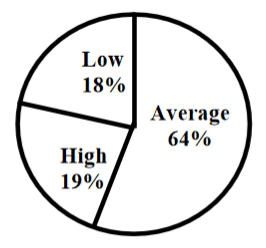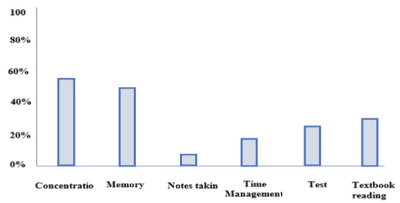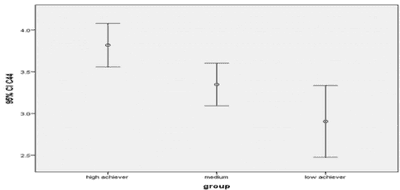An analysis on the study habits among undergraduate medical students
Rajendran R.1, Asokan S.2*, Sneha Thangaraj S.3
DOI: https://doi.org/10.17511/ijmrr.2019.i05.09
1 Ramesh Rajendran, Associate Professor, Department of General Medicine, Velammal Medical College Hospital & Research Institute, Mumbai, Maharastra, India.
2* Sangeetha Asokan, Assistant Professor, Department of General Medicine, Velammal Medical College Hospital & Research Institute, Mumbai, Maharastra, India.
3 Sharon Sneha Thangaraj, 1styear MBBS Student, Velammal Medical College Hospital & Research Institute, Mumbai, Maharastra, India.
Introduction: Study habits is one important factor which influences the academic performance of students. The learning strategies of high achievers are likely to be more effective. The study was aimed to analyse the study habits among undergraduate medical students and compare the study habits of high, average and low achieving undergraduate medical students. Application of effective learning strategies may be helpful in achieving better academic outcomes. Materials and Methods: The study was conducted as a cross sectional, observational study with 118 Final year MBBS students as study participants using Dennis Congos Study Skills Inventory Questionnaire consisting of 51 study habits questions classified according to domains of Text Book reading, Notes taking, Memory, Test Preparation, Concentration, Time management. Results: The percentage of students scoring above the cut off levels in each domain were: Memory: 61/118 (51.69%), Concentration: 67/118 (56.77%), Notes taking: 7/118 (5.93%), Time management: 17/118 (14.40%), Test preparation: 31/118 (26.27%), Text book reading: 35/118 (29.66%). The only Study habit that showed significant difference across the high, medium and low achievers was: Ability to pay attention in the class (p: 0.006). Conclusion:Though the students are talented and fare better in Memory and Concentration skills, there is glaring lack of attitudinal skills like Notes taking, Time management, Test preparation and Textbook reading skills. Paying attention in the class seems to be one most important distinguishing learning strategy determining the academic performance. Teaching– Learning methodologies need to be made more interesting so as to actively engage the attention of low achievers also.
Keywords: Study habits, Dennis Congos Study Skills Inventory, Notes taking, Time management, Test preparation, Textbook reading
| Corresponding Author | How to Cite this Article | To Browse |
|---|---|---|
| , Assistant Professor, Department of General Medicine, Velammal Medical College Hospital & Research Institute, Mumbai, Maharastra, India. Email: |
Rajendran R, Asokan S, Thangaraj SS. An analysis on the study habits among undergraduate medical students. Int J Med Res Rev. 2019;7(5):404-410. Available From https://ijmrr.medresearch.in/index.php/ijmrr/article/view/1086 |


 ©
© 

